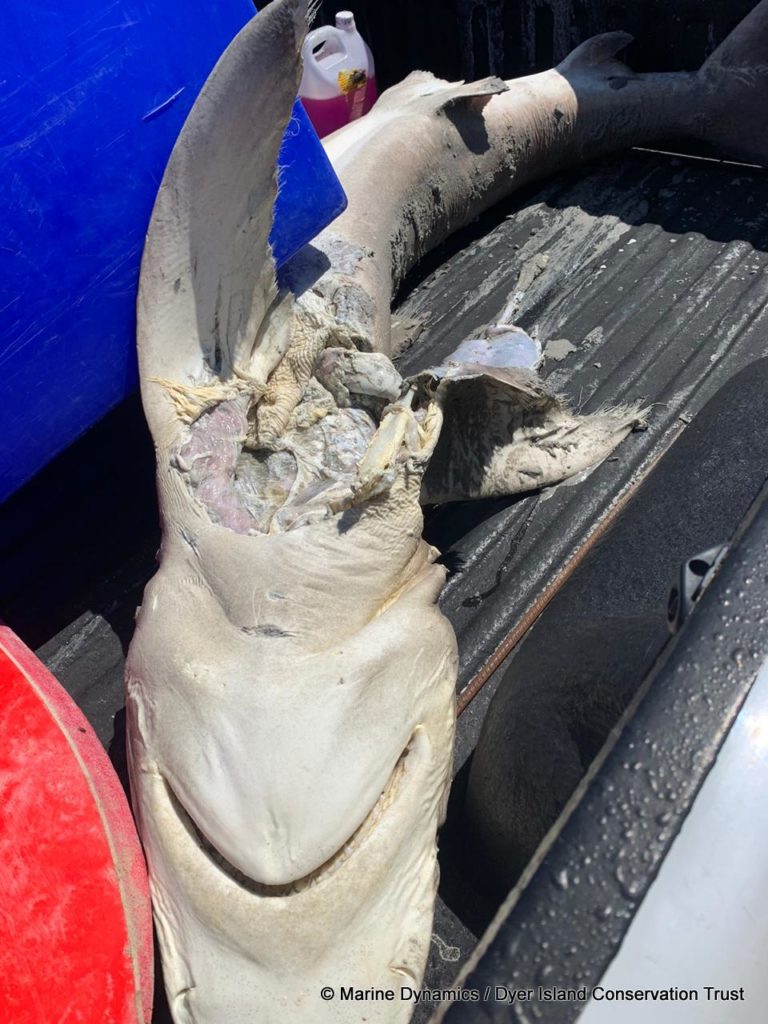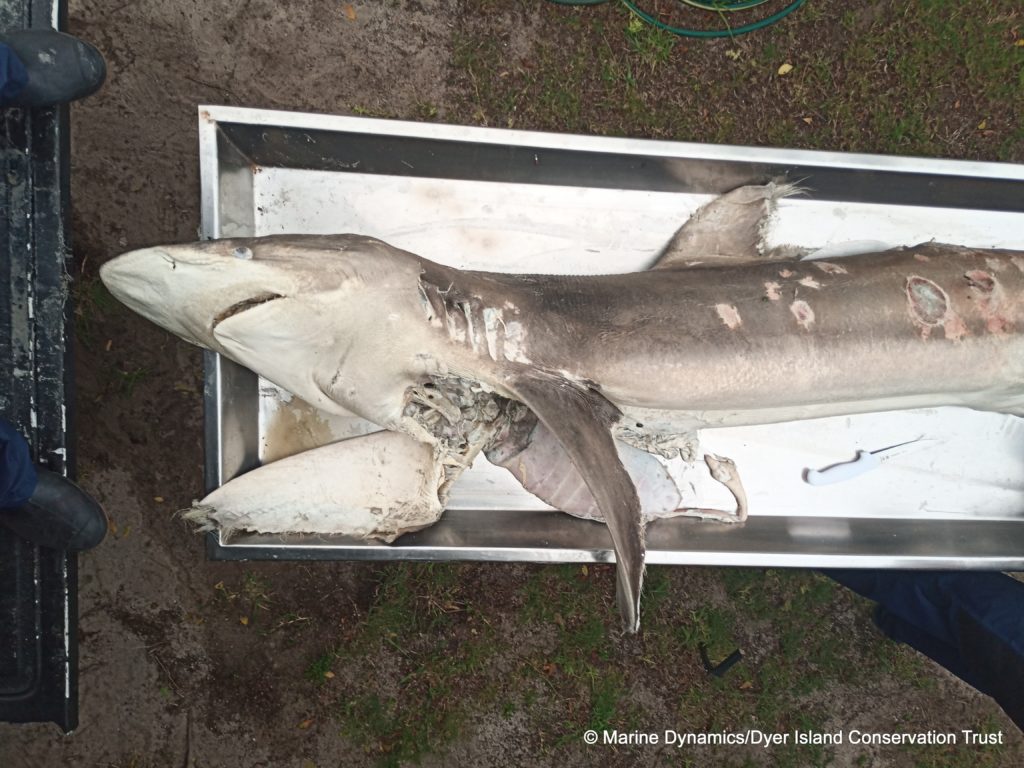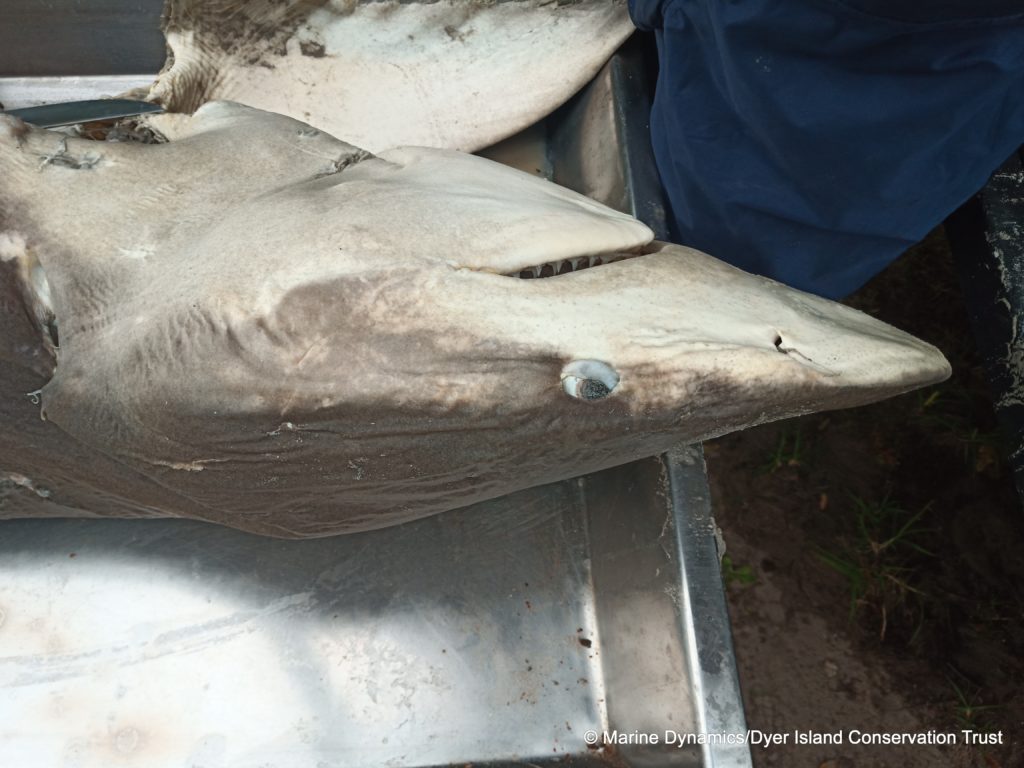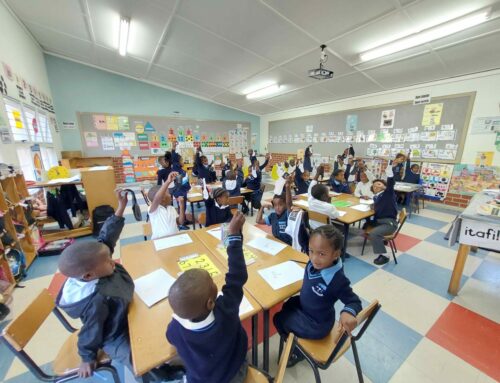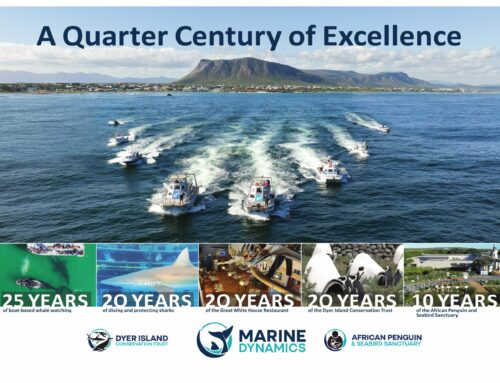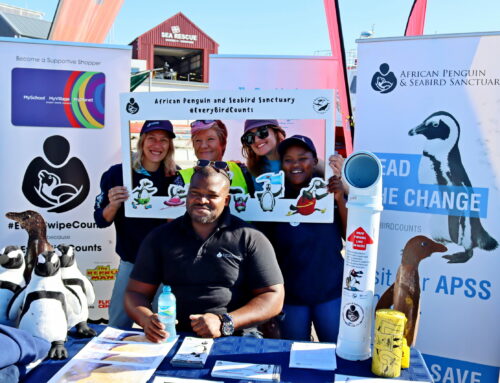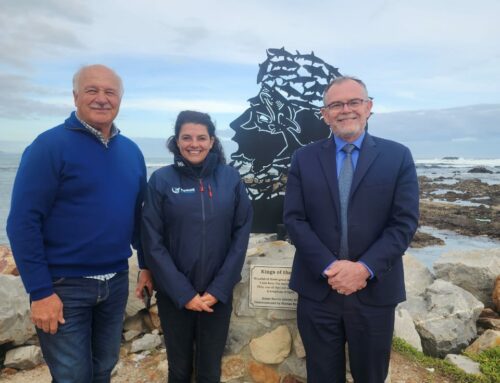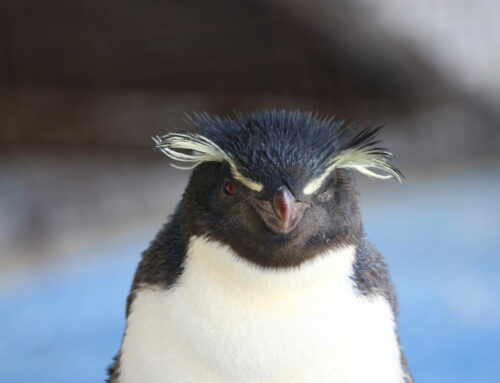A three meter long Copper shark (also known as the bronze whaler shark) was retrieved from Grotto Beach in Hermanus on the morning of 5 Feb 2020, by the Dyer Island Conservation Trust/Marine Dynamics research team. The female shark was torn open at the torso with its liver and heart completely removed. The previous day, two killer whales known as Port and Starboard were observed in False Bay, 100 km West of Hermanus. This Orca ( killer whale) pair are confirmed to have predated on both Sevengill and White shark species in this manner off the Western Cape but this was the first copper shark carcass to be linked to them. The pair are known to specifically tear open their shark prey to extract the large lipid rich liver, and discard the body. Their story has gone round the world and generated much interest the last three years.
The DICT team conducted the necropsy on the copper shark and confirmed it was very likely the result of Orca predation, as the injuries were identical to other shark species predated on by them. There were also raker marks (tooth impressions) of killer whales on the carcass. This behaviour is being observed more frequently in SA, causing ripple effects in certain shark species distributions, as well as potentially influencing the ecology of western cape coastal areas, as a consequence of sharks evading their traditional aggregation sites for extended time periods.
Thank you to De Waal Steyn at The Village News for letting us know about this after they received a notification from Riekie Louw.
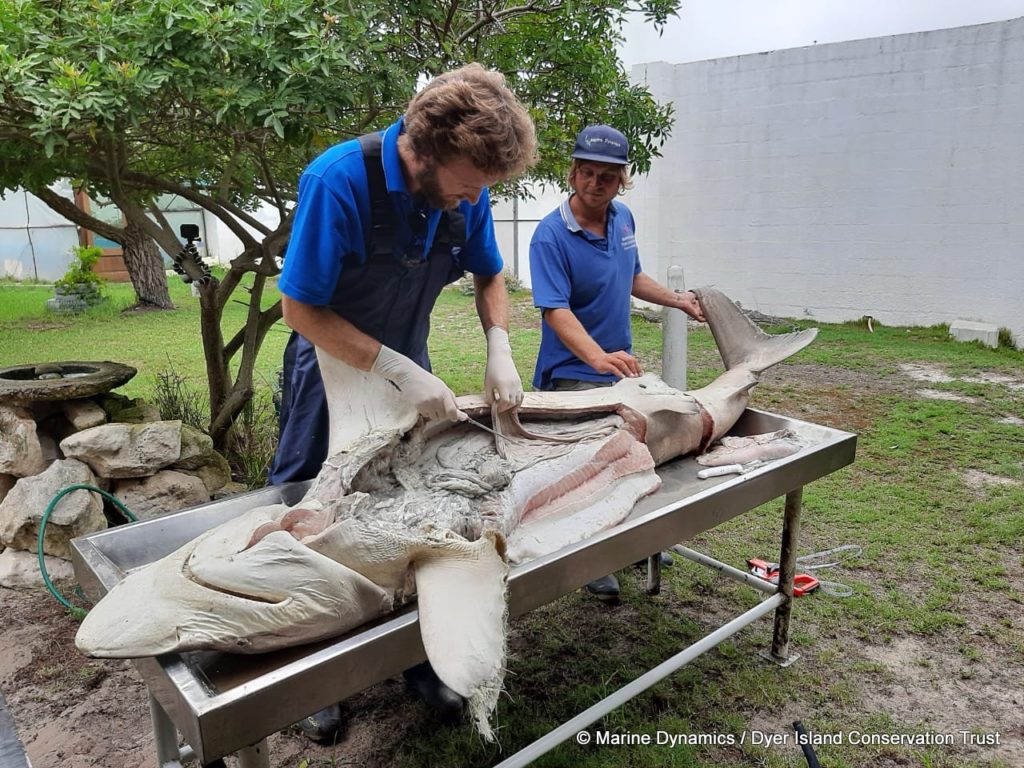
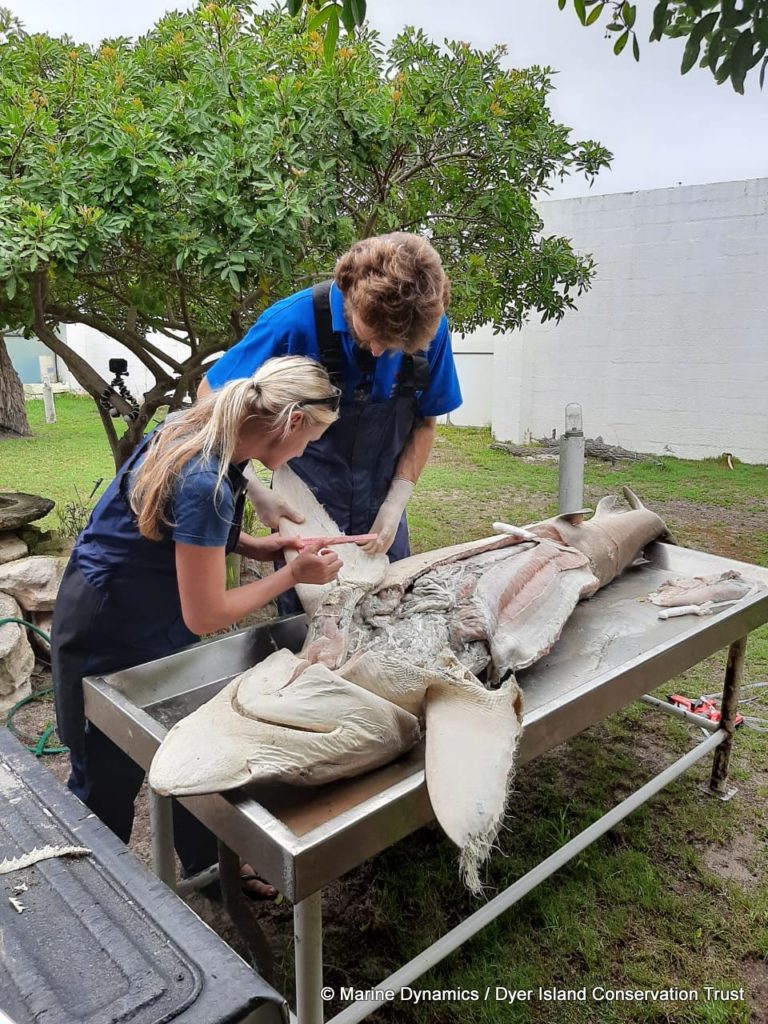
DICT Team conducting necropsies on the Copper shark
